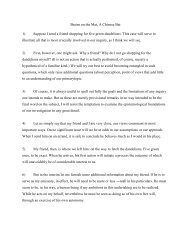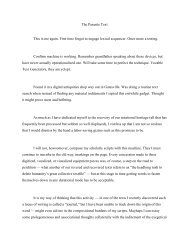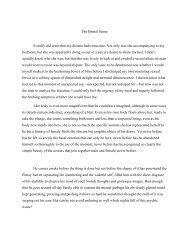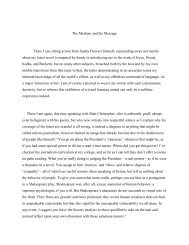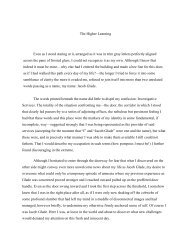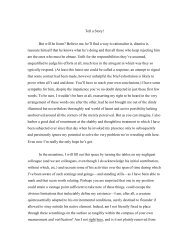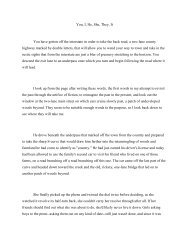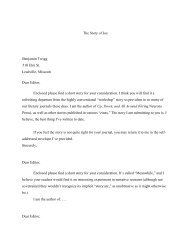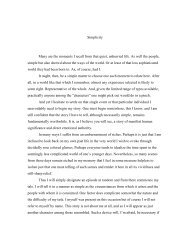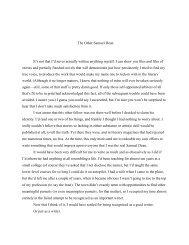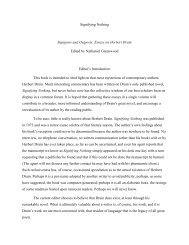The View from Nowhere
You also want an ePaper? Increase the reach of your titles
YUMPU automatically turns print PDFs into web optimized ePapers that Google loves.
despond deeper, the conviction that all endeavor, all struggle, even the struggle to write, was<br />
utterly useless even greater, until now this latest seizure of immobility threatened to leave him<br />
permanently incapacitated, if only because he can now see that every time he manages to renew<br />
his sense of purpose and rededicate himself to getting on with the work that ought to be giving<br />
him satisfaction, or else why would he do it, he only wound up in an even deeper psychological<br />
pit, this time so deep he’s pretty sure he can’t get out, the feeling of being hemmed in, confined,<br />
cut off <strong>from</strong> reassuring light and revivifying air, so intense he thinks his whole body is simply<br />
going to cave in, his very being squeezed out of existence, and if this is the price to pay for<br />
continuing to function, at least part of the time, at something like a normal level of competence,<br />
then he would prefer just to stop, cease trying, lapse into a voluntary catatonic state, declare it all<br />
a worthless fraud, an opportunity only for torment and torture, undeserving of any further effort<br />
to make it make sense,<br />
Meadows has often indicated—although surprisingly few commentators have taken note<br />
of the fact—that his most immediate influences are the great modern interrogators of human<br />
consciousness: Henry James, Virginia Woolf, James Joyce. <strong>The</strong>ir unstated doctrine that the<br />
proper work of the novelist is to limn the processes of the mind in all its impulsive flow, to<br />
connect the reader with another human personality through the writer’s authentic re-creation of<br />
the singular mental life that comprises such a personality, is Julian Meadows’s own literary<br />
lodestone. In all of his work its pull can be recognized in his unwillingness to sacrifice this<br />
psychological verism to the artificial demands of plot or theme or what some critics want to call<br />
fine writing.<br />
While it would probably not be surprising for readers of Meadows’s fiction to learn that<br />
he sees himself as the inheritor of a tradition of interiorized fiction a la James and Woolf, they<br />
might be interested to know further that Julian Meadows did not truly understand the nature of<br />
his literary task until he came upon the writing of the European critic Petr Yankoff. In particular,<br />
he has never forgotten this passage, <strong>from</strong> Yankoff’s book Projecting the Self: “To find a<br />
straightforward and unmediated perspective on the performing subject, to bear witness to his<br />
self-revelations in the act of enunciation itself, is crucial to the reading subject’s capacity to<br />
situate himself satisfactorily in relation to the text itself, its meanings, judgments, its mutually





